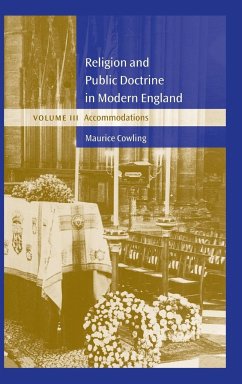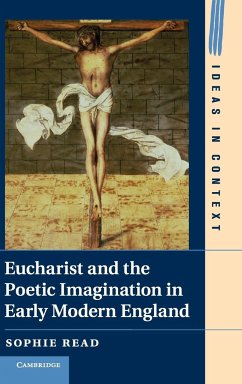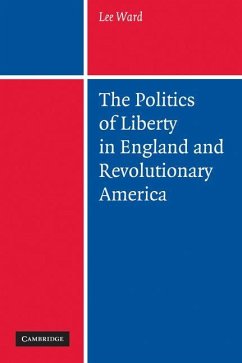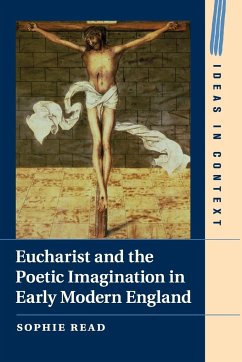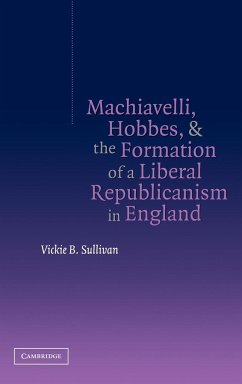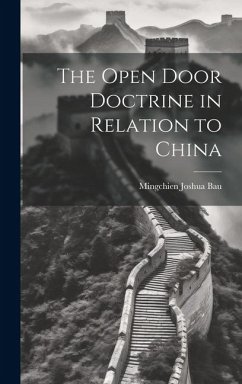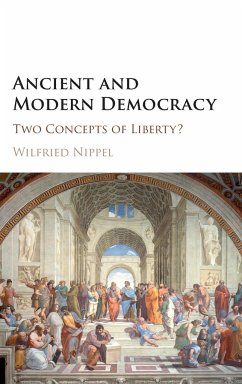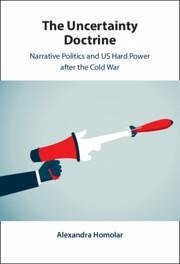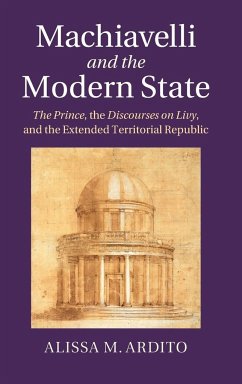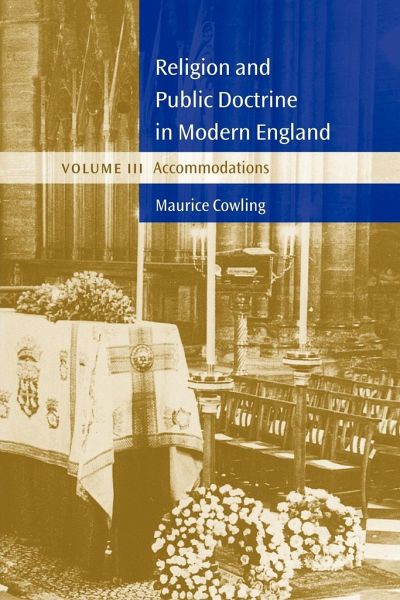
Religion and Public Doctrine in Modern England
Volume 3, Accommodations
Versandkostenfrei!
Versandfertig in 1-2 Wochen
61,99 €
inkl. MwSt.
Weitere Ausgaben:

PAYBACK Punkte
31 °P sammeln!
A massive and authoritative contribution to the intellectual and cultural history of modern England.The third and concluding volume of Maurice Cowling's magisterial sequence examines three related strands of English thought - latitudinarianism, the Christian thought which has assumed that latitudinarianism gives away too much, and the post-Christian thought which has assumed that Christianity is irrelevant or anachronistic. As in previous volumes, Maurice Cowling conducts his argument through a series of encounters with individual thinkers, including Burke, Disraeli, the Arnolds, Tennyson and ...
A massive and authoritative contribution to the intellectual and cultural history of modern England.
The third and concluding volume of Maurice Cowling's magisterial sequence examines three related strands of English thought - latitudinarianism, the Christian thought which has assumed that latitudinarianism gives away too much, and the post-Christian thought which has assumed that Christianity is irrelevant or anachronistic. As in previous volumes, Maurice Cowling conducts his argument through a series of encounters with individual thinkers, including Burke, Disraeli, the Arnolds, Tennyson and Tawney in the first half, and Darwin, Keynes, Orwell, Leavis and Berlin in the second. Central to the whole is Mr Cowling's contention that the modern mind cannot escape from religion. Religion and Public Doctrine in Modern England represents a massive contribution to the intellectual and cultural history of modern England, of interest to historians, literary and cultural critics, theologians, philosophers, economists, as well as to that broader reading public with a serious interest in the making of the English mental landscape.
Table of content:
Introduction; Part V. The Christian Intellect and Modern Thought in Modern England: 1. The reanimation of protestantism I: Carlyle, Froude and Kingsley; 2. Christianity and literature I: Burke and Disraeli; 3. The reanimation of protestantism II: Thomas Arnold, Bunsen, Jowett, Stanley, Lyall and Max Muller; 4. The enlargement of Christianity: Matthew Arnold, Seeley, Sidgwick and Wicksteed; 5. Christianity and literature II: Dickens, Tennyson, Browning, Pater and Wilde; 6. Christianity and modern knowledge I: Stirling, Wallace, Caird and Green; 7. Whiggism, liberalism and Christianity I: Macaulay, Lecky, Bryce and Fisher; 8. Whiggism, liberalism and Christianity II: Fitzjames Stephen, Acton, Maine, Inge, Henson and Smuts; 9. Christianity and modern knowledge II: Whewell, Stubbs and Cunningham; 10. Christianity in an unfriendly world I: Shaftesbury, Maurice, Westcott, Tawney and Temple; 11. Christianity in an unfriendly world II: Forsyth, Masterman, Gore, Figgis and Lewis; 12. Christianity in an unfriendly world III: Underhill, Eddington, Needham, Zaehner and Jung; 13. Christianity in an unfriendly world IV: Balfour, Ashley and Joseph Chamberlain; 14. Christianity in an unfriendly world V: Milbank and Macintyre; Part VI. The Post-Christian Consensus: 15. Modern knowledge and the post-Christian consensus I: Darwin, Dawkins, Galton and Pearson; 16. Modern knowledge and the post-Christian consensus II: Freud, J. B. S. Haldane, Huxley and Popper; 17. Modern knowledge and the post-Christian consensus III: F. H. Bradley, Bosanquet, R. B. Haldane, A. C. Bradley, Elgar, Parry and Hadow; 18. Modern knowledge and the post-Christian consensus IV: Maitland, Hobhouse, Keynes and Hayek; 19. English socialism as English religion: The Webbs, Macdonald, Laski, Orwell and Crossman; 20. Literature and the post-Christian consensus: Wordsworth, Hardy, Kipling and Forster; 21. Modern knowledge and the post-Christian consensus V: Richards and Leavis; 22. Modern knowledge and the post-Christian consensus VI: Williams, Eagleton, Kenny, Skinner and Scruton; 23. Judaism and the post-Christian consensus: Namier, Berlin, Koestler and Steiner; 24. Complication and dilapidation; Conclusion: the author and the argument; Index.
The third and concluding volume of Maurice Cowling's magisterial sequence examines three related strands of English thought - latitudinarianism, the Christian thought which has assumed that latitudinarianism gives away too much, and the post-Christian thought which has assumed that Christianity is irrelevant or anachronistic. As in previous volumes, Maurice Cowling conducts his argument through a series of encounters with individual thinkers, including Burke, Disraeli, the Arnolds, Tennyson and Tawney in the first half, and Darwin, Keynes, Orwell, Leavis and Berlin in the second. Central to the whole is Mr Cowling's contention that the modern mind cannot escape from religion. Religion and Public Doctrine in Modern England represents a massive contribution to the intellectual and cultural history of modern England, of interest to historians, literary and cultural critics, theologians, philosophers, economists, as well as to that broader reading public with a serious interest in the making of the English mental landscape.
Table of content:
Introduction; Part V. The Christian Intellect and Modern Thought in Modern England: 1. The reanimation of protestantism I: Carlyle, Froude and Kingsley; 2. Christianity and literature I: Burke and Disraeli; 3. The reanimation of protestantism II: Thomas Arnold, Bunsen, Jowett, Stanley, Lyall and Max Muller; 4. The enlargement of Christianity: Matthew Arnold, Seeley, Sidgwick and Wicksteed; 5. Christianity and literature II: Dickens, Tennyson, Browning, Pater and Wilde; 6. Christianity and modern knowledge I: Stirling, Wallace, Caird and Green; 7. Whiggism, liberalism and Christianity I: Macaulay, Lecky, Bryce and Fisher; 8. Whiggism, liberalism and Christianity II: Fitzjames Stephen, Acton, Maine, Inge, Henson and Smuts; 9. Christianity and modern knowledge II: Whewell, Stubbs and Cunningham; 10. Christianity in an unfriendly world I: Shaftesbury, Maurice, Westcott, Tawney and Temple; 11. Christianity in an unfriendly world II: Forsyth, Masterman, Gore, Figgis and Lewis; 12. Christianity in an unfriendly world III: Underhill, Eddington, Needham, Zaehner and Jung; 13. Christianity in an unfriendly world IV: Balfour, Ashley and Joseph Chamberlain; 14. Christianity in an unfriendly world V: Milbank and Macintyre; Part VI. The Post-Christian Consensus: 15. Modern knowledge and the post-Christian consensus I: Darwin, Dawkins, Galton and Pearson; 16. Modern knowledge and the post-Christian consensus II: Freud, J. B. S. Haldane, Huxley and Popper; 17. Modern knowledge and the post-Christian consensus III: F. H. Bradley, Bosanquet, R. B. Haldane, A. C. Bradley, Elgar, Parry and Hadow; 18. Modern knowledge and the post-Christian consensus IV: Maitland, Hobhouse, Keynes and Hayek; 19. English socialism as English religion: The Webbs, Macdonald, Laski, Orwell and Crossman; 20. Literature and the post-Christian consensus: Wordsworth, Hardy, Kipling and Forster; 21. Modern knowledge and the post-Christian consensus V: Richards and Leavis; 22. Modern knowledge and the post-Christian consensus VI: Williams, Eagleton, Kenny, Skinner and Scruton; 23. Judaism and the post-Christian consensus: Namier, Berlin, Koestler and Steiner; 24. Complication and dilapidation; Conclusion: the author and the argument; Index.





